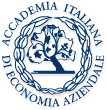Crescita, investimenti e sviluppo economico: verso una politica industriale europea
L’avanzare del processo di globalizzazione rende evidente come le logiche liberistiche che hanno retto fino ad oggi l’economia mondiale, prima attraverso la specializzazione produttiva dei paesi di vecchia e nuova industrializzazione, poi attraverso la forza trainante esercitata dai paesi di nuova industrializzazione, appaiano ormai in crisi, imponendo la necessità di definire un nuovo ordine economico mondiale capace di garantire sviluppo e prosperità a tutti i popoli del mondo. Per i paesi europei questa fase offre l’opportunità di contribuire alla definizione del nuovo ordine mondiale, valorizzando e al tempo stesso rinnovando la cultura europea dell’economia sociale di mercato. Affinché l’Unione Europea possa raccogliere la sfida è necessario che essa superi la posizione di debolezza che occupa oggi nel panorama mondiale, attraverso la definizione di un nuovo framework istituzionale capace di interpretare le attuali esigenze socio-economiche su scala mondiale. Per l’Unione Europea è tempo di avanzare lungo il cammino dell’Unione economica attraverso lo sviluppo di una politica industriale europea capace di fare da volano alle istanze di sviluppo e coesione tipiche del modello sociale europeo. Il processo è avviato e le istituzioni europee sono pienamente consapevoli della necessità di procedere in questa direzione; riconoscere il processo è importantissimo per farlo avanzare: lo sbocco costituirà il modello di economia sociale di mercato che l’Unione Europea saprà esprimere per il XXI secolo.
Globalization has entered a new phase, requiring innovative solutions to establish a new world order. The traditional laissez faire paradigm on which the global economy grew during the last century, earlier based on the production specialisation of old and new industrialized countries and later on the driving force of the new industrialized countries, appears to be in crisis, and the world economy now needs a paradigm shift in order to guarantee growth and prosperity to the world population. For the EU this phase is an opportunity to contribute to the establishment of a new order, enhancing and renewing at the same time the European culture of the social market economy. In order to take this chance UE has to overcome its current weak position in the global scenario through the definition of a new institutional framework able to meet the current socio-economic needs at a global level. For EU it is time to move forward along the path of the Economic Union through the development of a European industrial policy capable of acting as a driving force for development and cohesion. The process is started and the European institutions are fully aware of the need to move forward into this direction; recognizing the process is important to advance it: the outcome of this process will be the model of social market economy that the European Union will be able to express for the XXI century.




